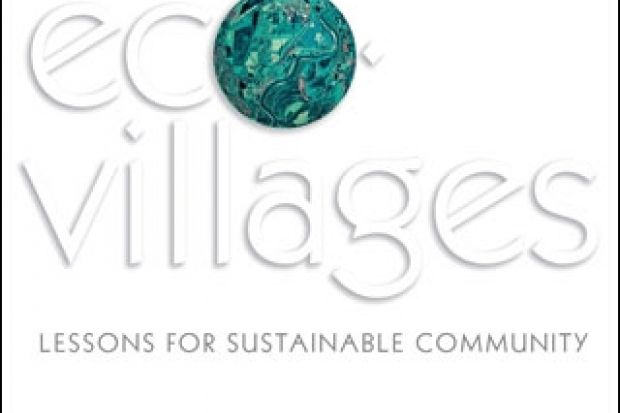When reading Karen Litfin’s inspiring book, I was reminded of my recent visit to the Lancaster Cohousing community on the edge of the village of Halton in northwest England. For more than 10 years, young professionals have been battling with planners, bankers, architects and local residents to build some 40 eco-homes in a rural location, centred around a common house, which features shared facilities such as kitchen, laundry and pantry. Community members also co-run car-sharing and food-buying cooperatives.
The UK’s planning laws are not exactly conducive to setting up such sustainable ventures, as the Lammas community in Pembrokeshire also found out. Setting up shop there was even more complicated, as the community hoped to take over agricultural land and live on it as smallholders, which is impossible within the current legal framework.
Thanks to devolution, however, Wales now has an innovative sustainable development scheme called One Wales: One Planet, which enables rural, land-based livelihoods to be created. To meet its planning permission, Lammas must follow strict rules to minimise its impact on the ecosystem. The community achieves this by following permacultural, off-grid design standards, mimicking nature to sustainably manage the land, in stark contrast to the monocultures of contemporary industrial agriculture.
Lammas and Lancaster Cohousing are the sort of eco-villages that Litfin, a political scientist at the University of Washington, would love. They are part of a growing movement of intentional communities experimenting with new ways of sustainable living. In her quest to learn more about such communities, Litfin travelled the world, visiting 14 ecovillages on five continents. This book is her way of making sense of this research experience, as well as part of a very personal growth story. In lively, honest and reflective prose, she offers deep insight into how this research project has been part of her own mission of living more sustainably.
While Litfin provides us with a range of practical information about the principles of ecovillage organising – including countless nuggets of inspiration that will be useful to anyone, not just those intending to live in communities – she also puts forward a theoretical framework for analysing these emerging ways of sustainable living.
What she calls her “four windows into sustainability” – ecology, economics, community and consciousness – are not particularly new. The triple bottom line and three-legged stool approaches have defined sustainability as the balancing of ecology, economy and society for a long time. Litfin, however, adds the “inner dimension of sustainability, the deeper questions of meaning and cosmological belonging that have informed human existence for ages”.
Their thoughts dominated by economics – jobs, healthcare and education costs – many people in so-called developed countries have lost this dimension of consciousness, as well as their deep connection to nature. The natural world is more likely to enter people’s lives through consumption – eg, organic supermarket food – than via a real connection to the land.
Although the ecovillages Litfin visited are mostly based in developed countries – housing well-educated professionals, like me, who want to exit the rat race by reconnecting to people and the land – it is important to bear in mind that many developing countries are still dominated by rural, land-based communities. Their livelihoods are often threatened by large-scale so-called “development” projects: mining, dams, agri-businesses and forest plantations.
Any attempt to reconnect to the land in the rich world should be celebrated, but we must not overlook the struggles faced by poor rural communities trying to carve out a land-based living at the edges of industrialised capitalism. For the rich to go back to the land is important. Equally important is to enable the poor to stay on the land and make a decent living.
Ecovillages: Lessons for Sustainable Community
By Karen T. Litfin
Polity, 224pp, £55.00 and £16.99
ISBN 9780745679495 and 9501
Published 15 November 2013





